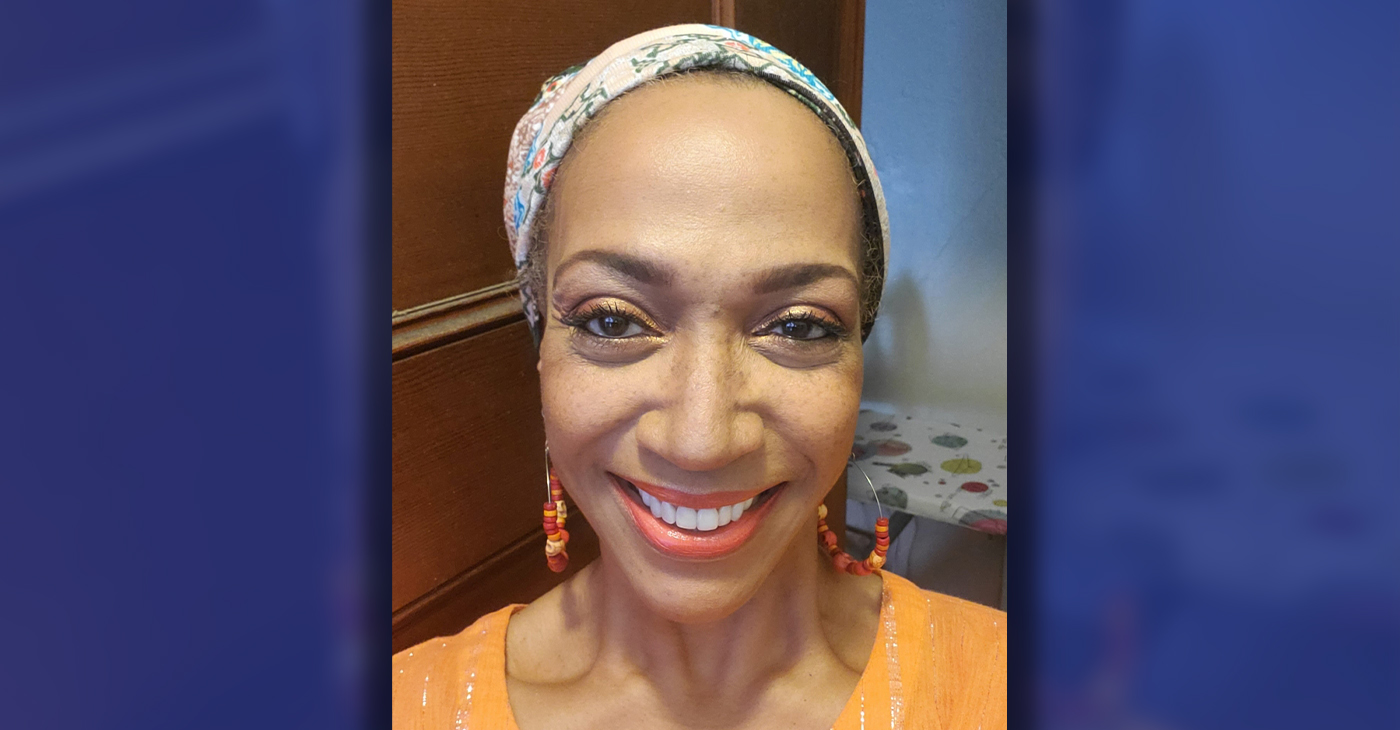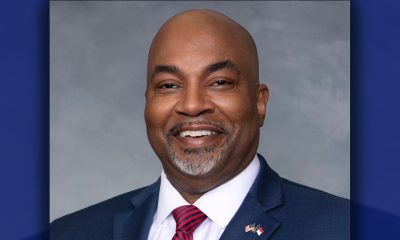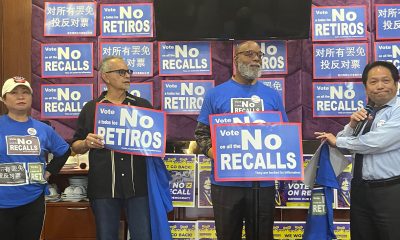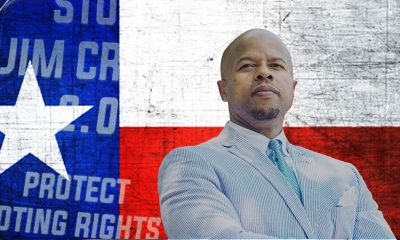Opinion
OP-ED: The Value of Your Vote
“The punishment which the wise suffer who refuse to take part in the government, is to live under the government of worse men.” Plato
The election season has definitely begun. Now is the time of politicians; polls and promises, but getting involved in politics should not just be a November occurrence. To be eligible to register to vote an individual must (1) be at least 18 years of age at the time of the next election –some states allow 17 year olds to vote (2) be a U.S. citizen and (3) be a resident of the jurisdiction where the individual is registering.
Originally the U.S. Constitution did not define voter eligibility and in the early years of the Republic most states only allowed white male property owners to vote. White women could vote in New Jersey but still had to meet the property ownership requirement. Freed male slaves could vote in 4 states; Delaware, Maryland, New Hampshire and New York. After the Civil War ended in 1865 the Republican Congress passed the 13th Amendment abolishing slavery and the 14th Amendment providing full citizenship rights for Blacks. Congress insisted that the Southern states ratify these Amendments before they could be readmitted into the United States. Because the Rebels had their voting rights suspended during Reconstruction the Republican Party (party of Lincoln and abolition) became the political majority in the South. In Texas 42 Blacks were elected to the State Legislature, 50 to the South Carolina Legislature, 127 to Louisiana’s and 99 to Alabama’s.
“These Republican legislatures moved quickly to protect voting rights for blacks, prohibit segregation, establish public education, and open public transportation, State police, juries, and other institutions to blacks.(It is noteworthy that the blacks serving both in the federal and State legislatures during that time forgivingly voted for amnesty for the Rebels.) “ David Barton the History of Black Voting Rights
The Democratic response to this voting empowerment of Black Americans were Poll Taxes, Literacy tests, Grandfather clauses, White-only primaries, physical intimidation and violence. These tactics would greatly reduce the voting percentages of Blacks. In Selma, Alabama the voting rolls were 99 percent white and 1 percent black even though there were more black residents than whites in that city. Black voters in Florida and Alabama were reduced by nearly 90 percent. By the 1940’s, only 5 percent of blacks in the South were registered to vote.
In October 2014 we sometimes forget the value and the price paid for our vote. Your vote is precious and should be handled as such. When you vote, you are hiring a politician to take responsibility for your income, your rights, your freedoms, your schools, your overall welfare and even the roads upon which you travel. When you vote this November make sure the candidate has your values and has a vision for your future and will fight for that future. Study the candidates, study the platforms, and study the issues. Refuse to let your vote be taken for granted!
Voting matters and your vote counts.
Activism
Books for Ghana
We effectively facilitated cross-continent community building! We met the call and provided 400 books for ASC’s students at the call of the Minister of Education. We supported the work of a new African writer whose breakout novel is an action-packed depiction of a young woman steeped in Ghanaian culture who travels to the USA for college, all the while experiencing the twists, turns, and uncertainties that life brings.

By Min. Rauna Thurston, Chief Mpuntuhene Afua Ewusiwa I
My travels to Afrika began in June 2022, on a tour led by Prof. Manu Ampim, Director of the organization Advancing The Research. I was scheduled to become an ordained Minister by Wo’se Community of the Sacred African Way. It was vital that my feet touch the soil of Kemet and my spirit connect with the continent’s people before ordination.
Since 2022, I’ve made six trips to Afrika. During my travels, I became a benefactor to Abeadze State College (ASC) in Abeadze Dominase, Ghana, originally founded by Daasebre Kwebu Ewusi VII, Paramount Chief of Abeadze Traditional Area and now run by the government. The students there were having trouble with English courses, which are mandatory. The Ghanaian Minister of Education endorsed a novel written by 18-year-old female Ghanaian first-time writer, Nhyira Esaaba Essel, titled Black Queen Sceptre. The idea was that if the students had something more interesting to read, it would evoke a passion for reading; this seemed reasonable to me. Offer students something exciting and imaginative, combined with instructors committed to their success and this could work.
The challenge is how to acquire 800 books?!
I was finishing another project for ASC, so my cash was thin and I was devoid of time to apply for annual grants. I sat on my porch in West Oakland, as I often do, when I’m feeling for and connecting to my ancestors. On quiet nights, I reminisce about the neighborhood I grew up in. Across the street from my house was the house that my Godfather, Baba Dr. Wade Nobles and family lived in, which later became The Institute for the Advanced Study of Black Family Life & Culture (IASBFLC). Then, it came to me…ancestors invited me to reach out to The Association of Black Psychologists – Bay Area Chapter (ABPsi-Bay Area)! It was a long shot but worth it!
I was granted an audience with the local ABPsi Board, who ultimately approved funding for the book project with a stipulation that the Board read the book and a request to subsequently offer input as to how the book would be implemented at ASC. In this moment, my memory jet set to my first ABPsi convention around 2002, while working for IASBFLC. Returning to the present, I thought, “They like to think because it feels good, and then, they talk about what to do about what they think about.” I’m doomed.
However, I came to understand why reading the book and offering suggestions for implementation were essential. In short: ABPsi is an organization that operates from the aspirational principles of Ma’at with aims of liberating the Afrikan Mind, empowering the Afrikan character, and enlivening: illuminating the Afrikan spirit. Their request resulted in a rollout of 400 books in a pair-share system. Students checked out books in pairs, thereby reducing our bottom line to half of the original cost because we purchased 50% fewer units. This nuance promoted an environment of Ujima (collective work & responsibility) and traditional Afrikan principles of cooperation and interdependence. The student’s collaborative approach encouraged shared responsibility, not only for the physical book but for each other’s success. This concept was Dr. Lawford Goddard’s, approved by the Board, with Dr. Patricia “Karabo” Nunley at the helm.
We effectively facilitated cross-continent community building! We met the call and provided 400 books for ASC’s students at the call of the Minister of Education. We supported the work of a new African writer whose breakout novel is an action-packed depiction of a young woman steeped in Ghanaian culture who travels to the USA for college, all the while experiencing the twists, turns, and uncertainties that life brings. (A collectible novel for all ages). A proposed future phase of this collaborative project is for ASC students to exchange reflective essays on Black Queen Sceptre with ABPsi Bay Area members.
We got into good trouble. To order Black Queen Sceptre, email esselewurama14@gmail.com.
I became an ordained Minister upon returning from my initial pilgrimage to Afrika. Who would have imagined that my travels to Afrika would culminate in me becoming a citizen of Sierra Leone and recently being named a Chief Mpuntuhene under Daasebre Kwebu Ewusi VII, Paramount Chief of Abeadze Traditional Area in Ghana, where I envision continued collaborations.
Min. Rauna/Chief Mpuntuhene is a member of ABPsi Bay Area, a healing resource committed to providing the Post Newspaper readership with monthly discussions about critical issues in Black Mental Health, Wealth & Wellness. Readers are welcome to join us at our monthly chapter meetings every 3rd Saturday via Zoom and contact us at bayareaabpsi@gmail.com.
Arts and Culture
In ‘Affrilachia: Testimonies,’ Puts Blacks in Appalacia on the Map

By Terri Schlichenmeyer
The Bookworm Sez
An average oak tree is bigger around than two people together can reach.
That mighty tree starts out with an acorn the size of a nickel, ultimately growing to some 80 feet tall, with a canopy of a hundred feet or more across.
And like the new book, “Affrilachia” by Chris Aluka Berry (with Kelly Elaine Navies and Maia A. Surdam), its roots spread wide and wider.
Affriclachia is a term a Kentucky poet coined in the 1990s referring to the Black communities in Appalachia who are similarly referred to as Affrilachians.
In 2016, “on a foggy Sunday morning in March,” Berry visited Affrilachia for the first time by going the Mount Zion AME Zion Church in Cullowhee, North Carolina. The congregation was tiny; just a handful of people were there that day, but a pair of siblings stood out to him.
According to Berry, Ann Rogers and Mae Louise Allen lived on opposite sides of town, and neither had a driver’s license. He surmised that church was the only time the elderly sisters were together then, but their devotion to one another was clear.
As the service ended, he asked Allen if he could visit her. Was she willing to talk about her life in the Appalachians, her parents, her town?
She was, and arrangements were made, but before Barry could get back to Cullowhee, he learned that Allen had died. Saddened, he wondered how many stories are lost each day in mountain communities where African Americans have lived for more than a century.
“I couldn’t make photographs of the past,” he says, “but I could document the people and places living now.”
In doing so he also offers photographs that he collected from people he met in ‘Affrilachia,’ in North Carolina, Georgia, Kentucky, and Tennessee, at a rustic “camp” that was likely created by enslaved people, at churches, and in modest houses along highways.
The people he interviewed recalled family tales and community stories of support, hardship, and home.
Says coauthor Navies, “These images shout without making a sound.”
If it’s true what they say about a picture being worth 1,000 words, then “Affrilachia,” as packed with photos as it is, is worth a million.
With that in mind, there’s not a lot of narrative inside this book, just a few poems, a small number of very brief interviews, a handful of memories passed down, and some background stories from author Berry and his co-authors. The tales are interesting but scant.
For most readers, though, that lack of narrative isn’t going to matter much. The photographs are the reason why you’d have this book.
Here are pictures of life as it was 50 years or a century ago: group photos, pictures taken of proud moments, worn pews, and happy children. Some of the modern pictures may make you wonder why they’re included, but they set a tone and tell a tale.
This is the kind of book you’ll take off the shelf, and notice something different every time you do. “Affrilachia” doesn’t contain a lot of words, but it’s a good choice when it’s time to branch out in your reading.
“Affrilachia: Testimonies,” by Chris Aluka Berry with Kelly Elaine Navies and Maia A. Surdam
c.2024, University of Kentucky Press, $50.00.
Activism
Oakland Post: Week of December 18 – 24, 2024
The printed Weekly Edition of the Oakland Post: Week of December 18 – 24, 2024

To enlarge your view of this issue, use the slider, magnifying glass icon or full page icon in the lower right corner of the browser window. ![]()
-

 California Black Media4 weeks ago
California Black Media4 weeks agoCalifornia to Offer $43.7 Million in Federal Grants to Combat Hate Crimes
-

 Black History4 weeks ago
Black History4 weeks agoEmeline King: A Trailblazer in the Automotive Industry
-

 California Black Media4 weeks ago
California Black Media4 weeks agoCalifornia Department of Aging Offers Free Resources for Family Caregivers in November
-

 California Black Media4 weeks ago
California Black Media4 weeks agoGov. Newsom Goes to Washington to Advocate for California Priorities
-

 Activism3 weeks ago
Activism3 weeks agoOakland Post: Week of November 27 – December 3, 2024
-

 Activism4 weeks ago
Activism4 weeks agoOCCUR Hosts “Faith Forward” Conference in Oakland
-

 Activism4 weeks ago
Activism4 weeks agoRichmond Seniors Still Having a Ball After 25 Years
-

 Bay Area4 weeks ago
Bay Area4 weeks agoRichmond’s New Fire Chief Sworn In























































